


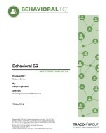
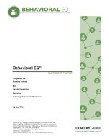
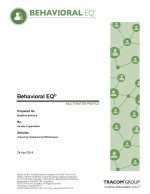
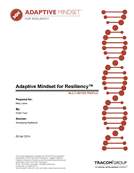

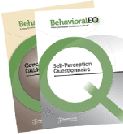






This site is protected by copyright and all content is owned by TRACOM or Accelerate UK 2015
Behavioural EQ
The modern workplace calls for a new kind of Emotional Intelligence model focused on the most practically important aspects of EQ and focused specifically on modern workplace challenges. Research shows that the behavioral elements of EQ — the aspects of the model that focus on our actions — lead to the most visible and meaningful improvements. These same behavioural aspects have proven to be the best predictors of job performance and success.
The third generation of Emotional Intelligence focuses on these behavioural aspects, so we now distinguish between Emotional Intelligence, which focuses on emotion awareness, recognition, and understanding, and Behavioural Intelligence, which represents practical skills that directly influence others and our own effectiveness.
Emotional Intelligence
- Perceiving and understanding one’s own emotions and the emotions of others
- Gaining insight into oneself
- Exercising empathy for others’ experiences
Behavioural Intelligence
- Recognising the impact that emotions have on one’s own behaviour and the behaviour of others
- Using this awareness to manage personal behaviour and relationships
To fully understand the differences, consider that Emotional Intelligence is completely internal; it is a person’s ability to understand his own emotions and recognise the emotions of others. Therefore Emotional Intelligence can be thought of as preceding Behavioural Intelligence. It might be helpful to practice Emotional Intelligence, but it is difficult to observe and put into action. Further, Behavioural Intelligence has proven to generate visible increases in productivity, team cohesion, employee engagement, leadership performance and the ability to effectively navigate change.
For more details on our Behavioural EQ Profiles and courses Click Here














